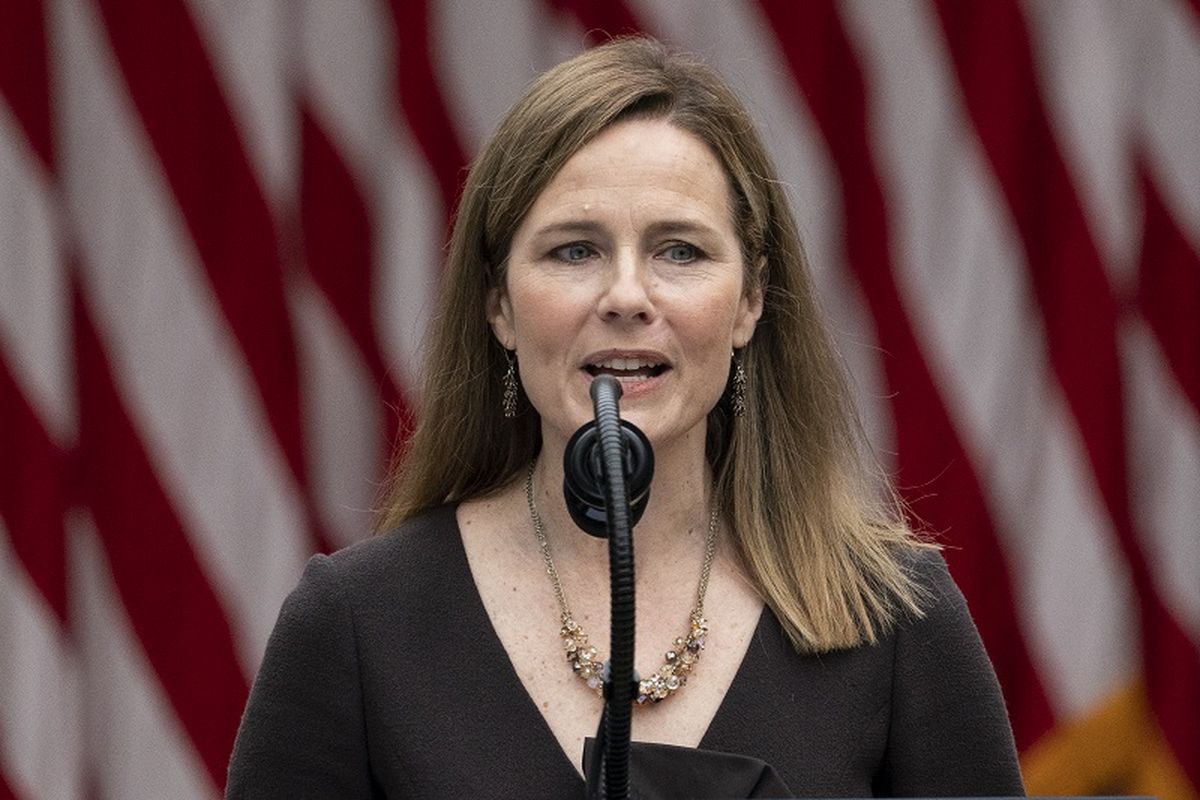Past Writings Indicate Amy Coney Barrett May Reverse Roe v. Wade

CHICAGO, KOMPAS.com - Trump’s Supreme Court nominee Amy Coney Barrett has expressed unease with some landmark rulings giving way to a reversal to Roe v. Wade.
In past writings, she sounded some malaise on abortion rulings and suggested in some of her academic writing her willingness to reconsider those decisions.
The question of whether Amy Coney Barrett, a one-time clerk to former conservative Justice Antonin Scalia, would actually try to overturn Roe v. Wade looms large as she heads into Senate confirmation hearings next week.
Read also: Roe v. Wade Reversal a Real Threat following Death of Ruth Bader Ginsburg
Roe v. Wade is the high court’s 1973 ruling recognizing a woman’s right to an abortion, and other long-established precedents.
A review of Barrett's writings and speeches as a Notre Dame law professor for the 15 years before she became a federal appeals court judge in 2017 reveal a nuanced thinker cautious about stating her personal views.
Amy Coney Barrett has never said publicly she would overturn Roe, or other precedents expanding abortion rights.
But Trump's Supreme Court nominee has clearly left the door open to that possibility.
“Our legal culture does not, and never has, treated the reversal of precedent as out-of-bounds,” she said in a 2013 Texas Law Review article.
Trump's Supreme Court nominee also describes the high-court tradition of heeding previous rulings, or precedent, as a “soft rule” and not “an inexorable command”.
Amy Coney Barrett, 48, has styled herself as the heir to Scalia, and in writing about Scalia’s judicial philosophy, she reveals her own.
To buttress her legal analyses, she nearly always brought up Scalia, for whom she clerked in the late 1990s.
Moments after Trump named her at the White House to fill the seat vacated by Ruth Bader Ginsburg’s death, Barrett paid homage to Scalia, saying, “His judicial philosophy is mine, too.”
Read also: Supreme Court Nominee Amy Barrett Could Reshape Judiciary for a Generation
At the center of that shared philosophy is a strict form of constitutional interpretation called originalism, which Scalia championed.


































